Abstract
Six rats received food contingent on pressing a lever on fixed-ratio 1, fixed-interval 30-second, and fixed-interval 60-second schedules, with concurrent access to a drinking spout, a running wheel, and a block of wood. Drinking, running, and chewing were monitored automatically, and these and other activities were observed directly during selected sessions. Because all sessions ended after delivery of 60 pellets, total time available for activities other than eating increased over the three schedules. Time spent contacting the lever and visiting the food tray increased in proportion to total available time, whereas the time spent in other activities changed in a complex manner such that drinking was the dominant adjunctive behavior in the 30-second condition, and running or chewing the dominant adjunctive behavior in five of six rats in the 60-second condition. General activity and grooming also occupied significant amounts of time. In a subsequent part of the experiment, running and chewing were prevented, and the majority of other activities, especially drinking and grooming, increased. The results show that (a) FI schedules of food reinforcement are accompanied by a wide variety of adjunctive activities; (b) the preferred activity differs according to the schedule duration; and (c) the extent to which activities substitute for one another is limited by the tendency for different activities to occupy different parts of the interreinforcement interval.
Keywords: adjunctive behavior, food reinforcement, drinking, running, chewing, grooming, fixed-interval schedule, lever press, rat
Full text
PDF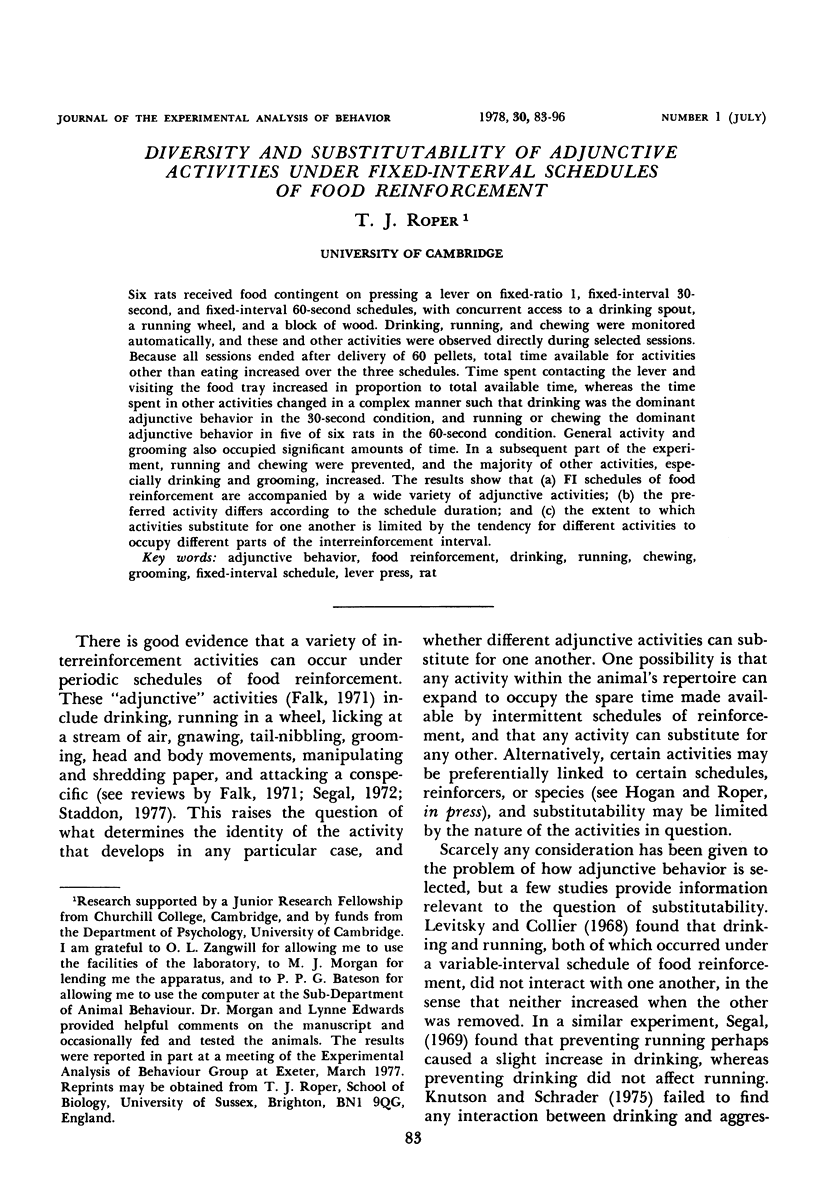
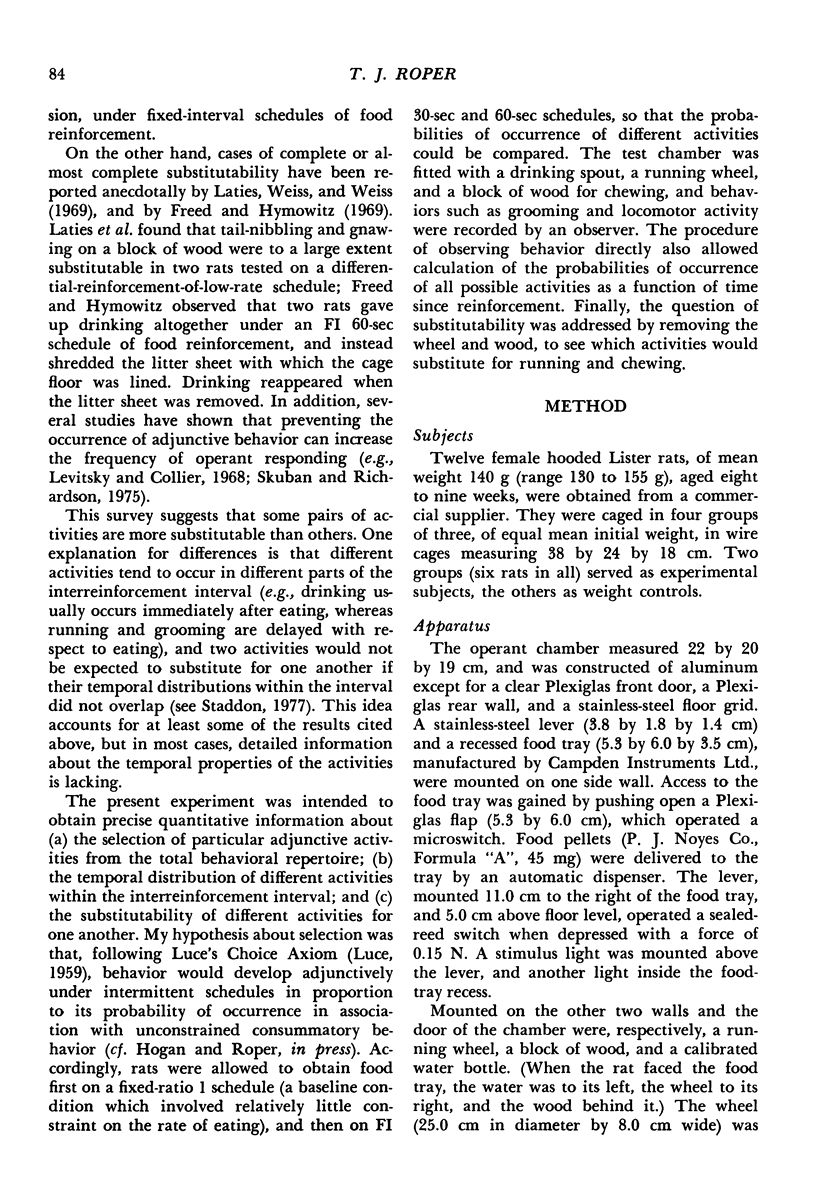

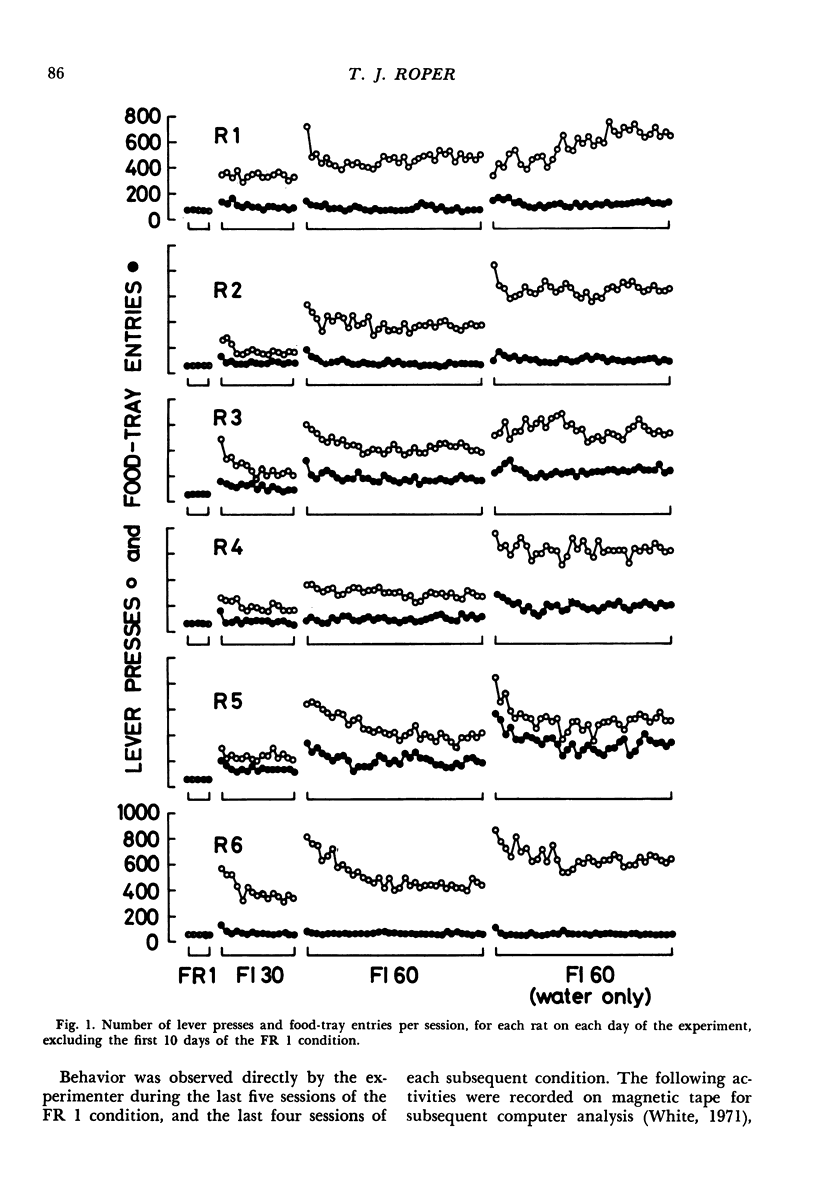
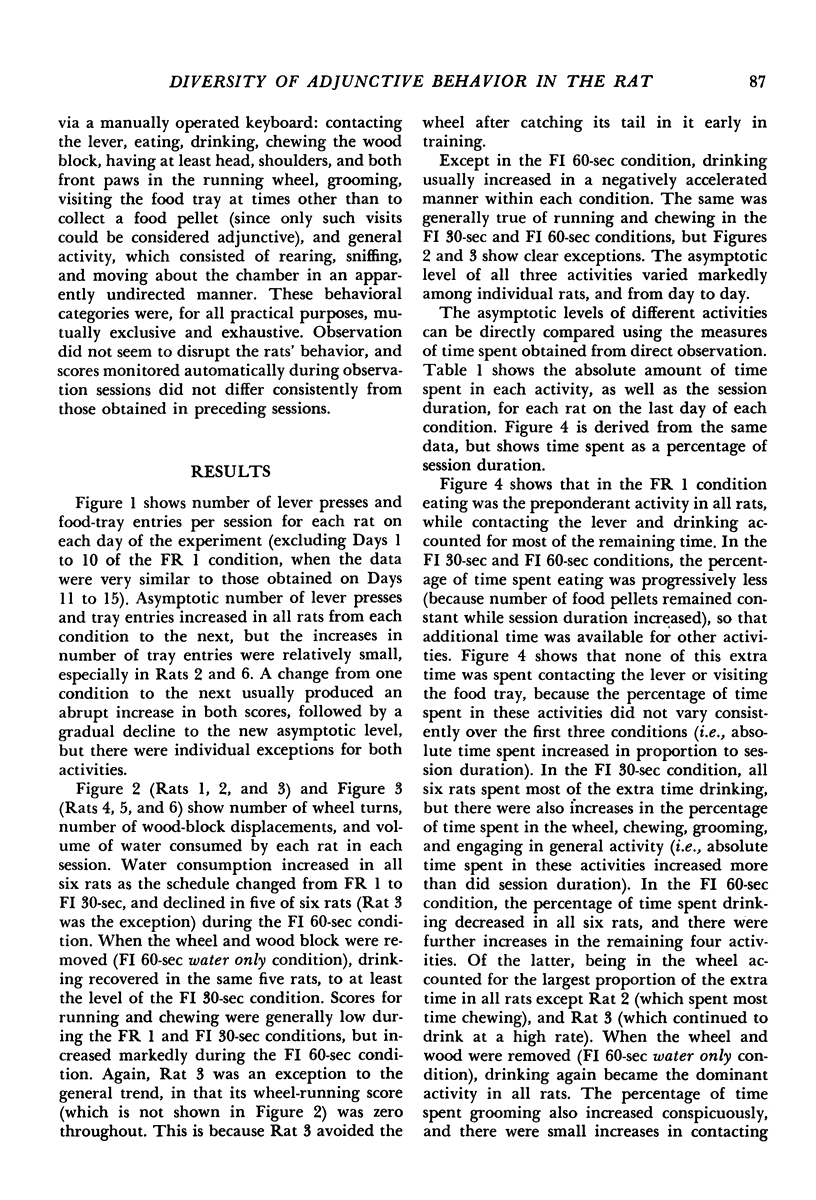
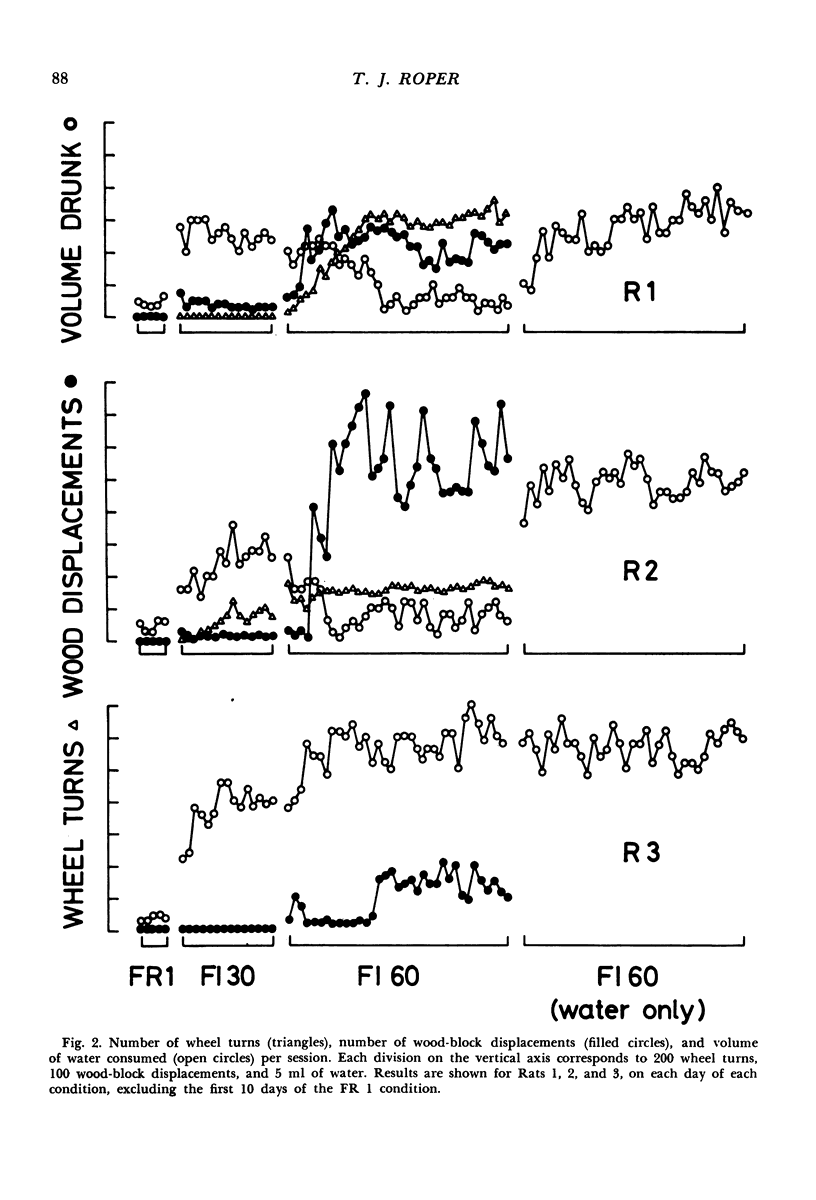
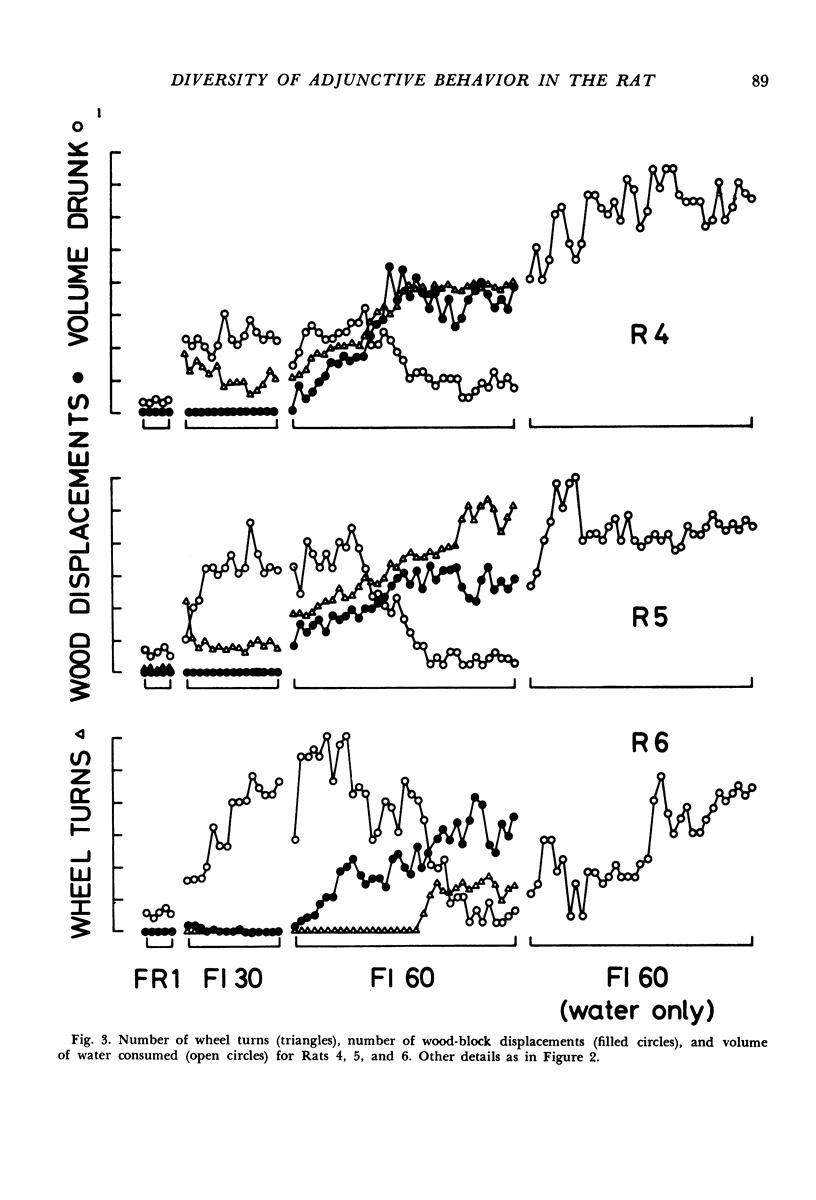
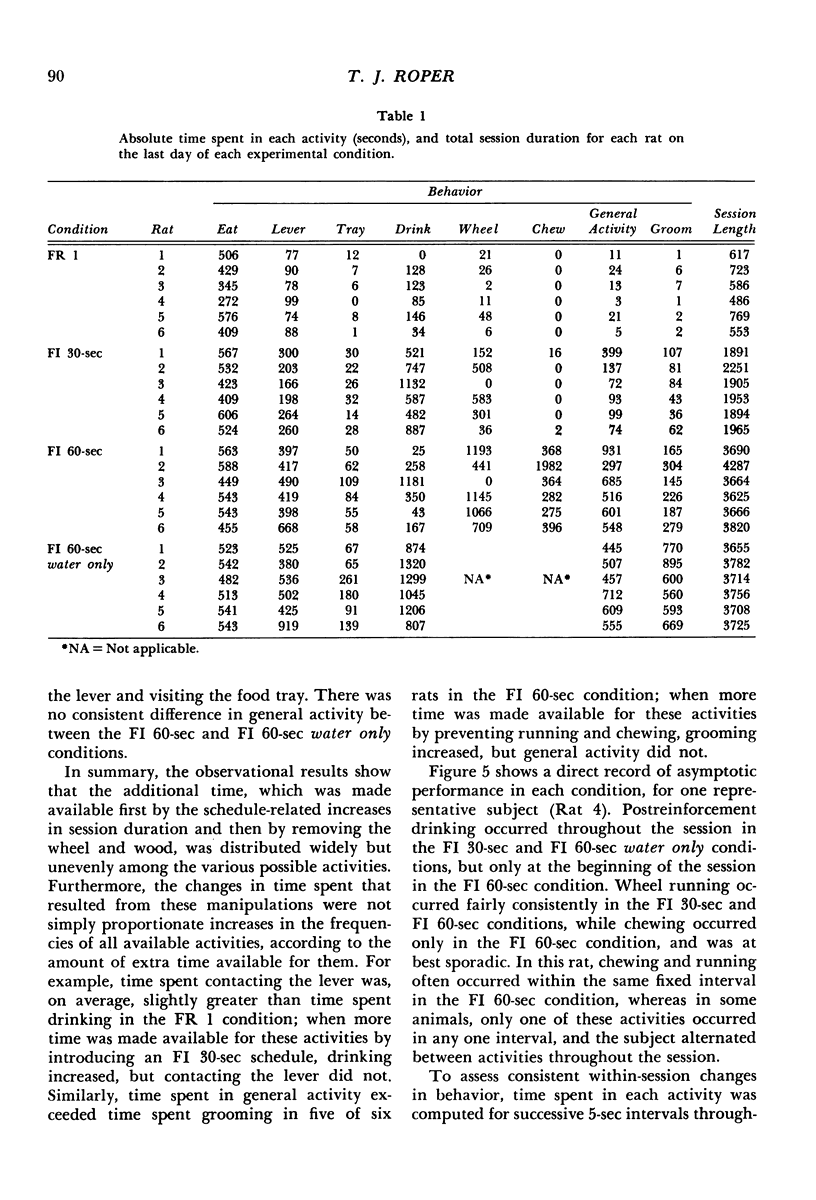
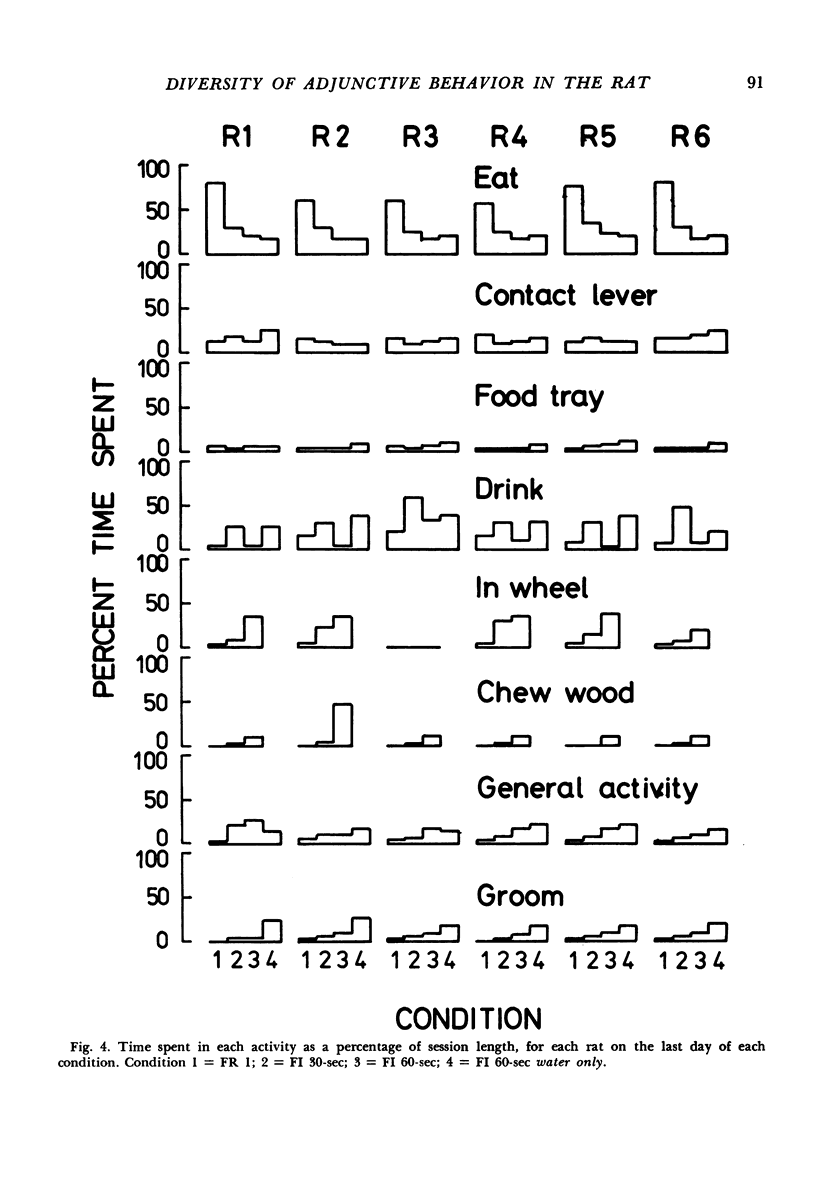

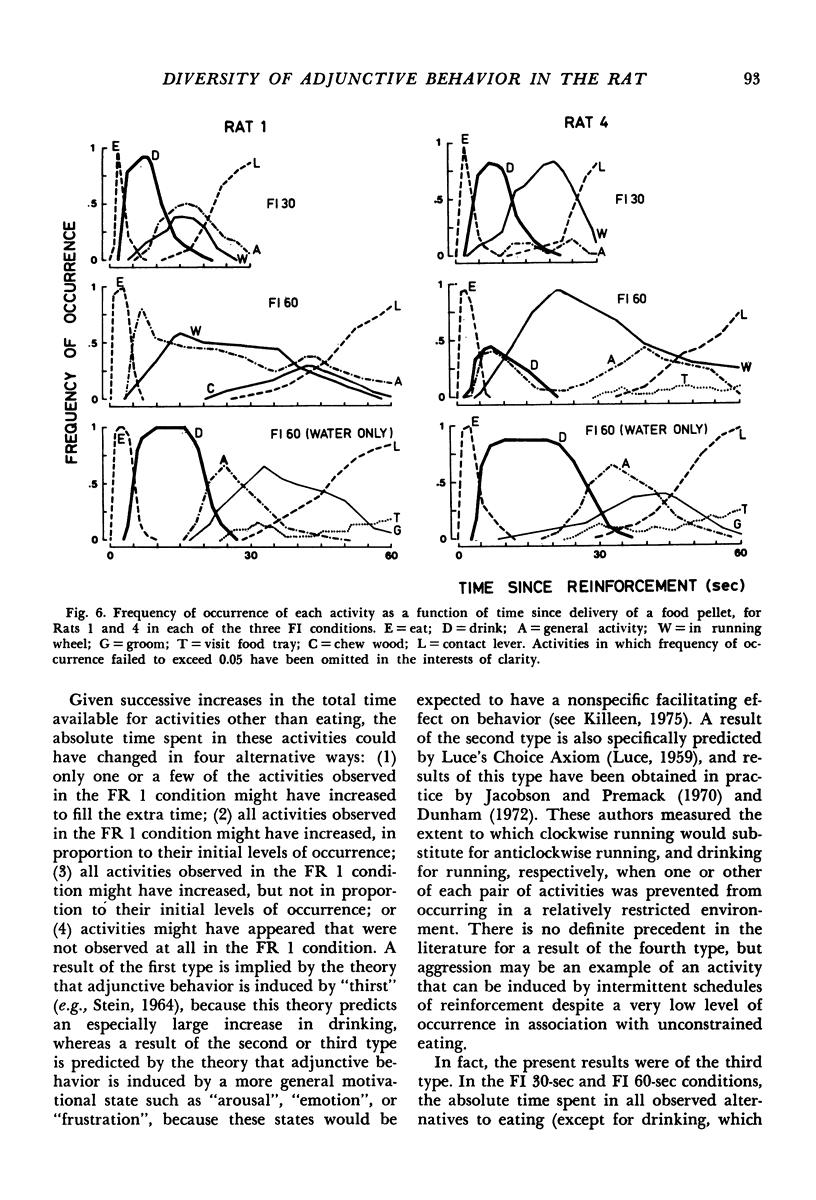
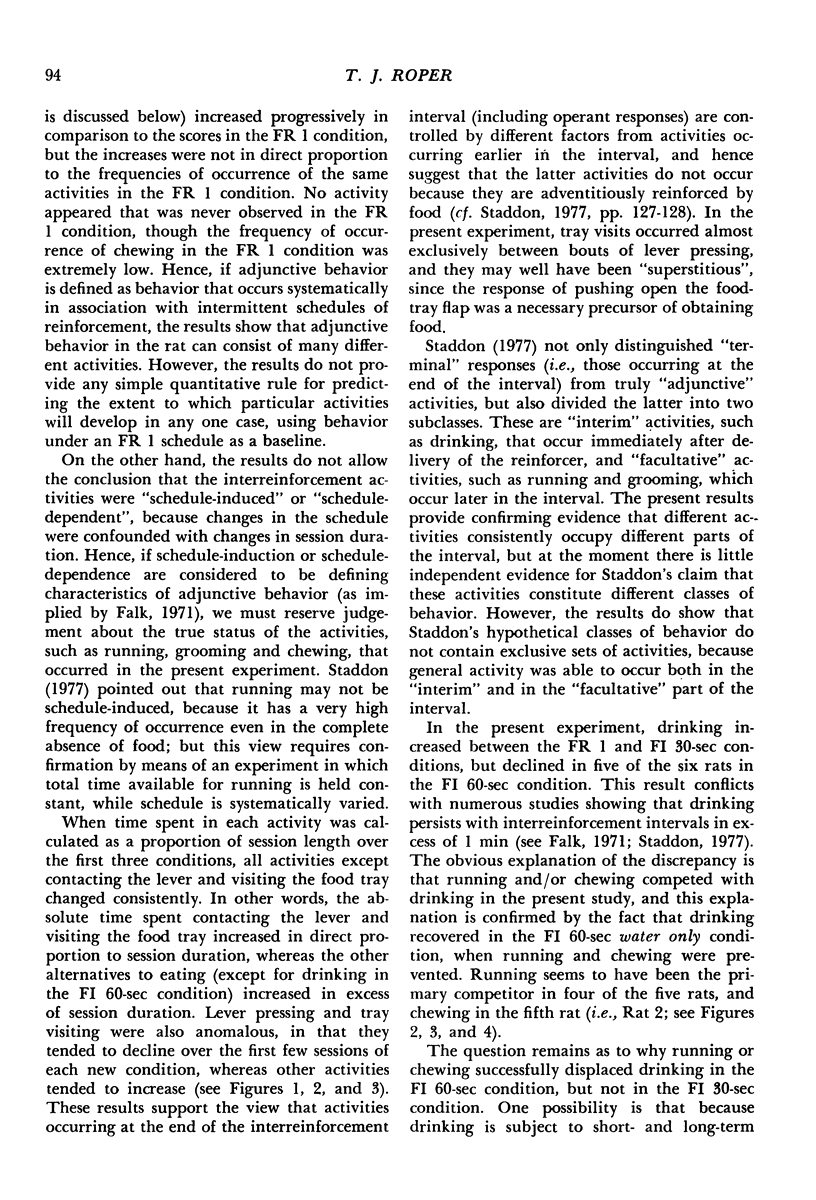
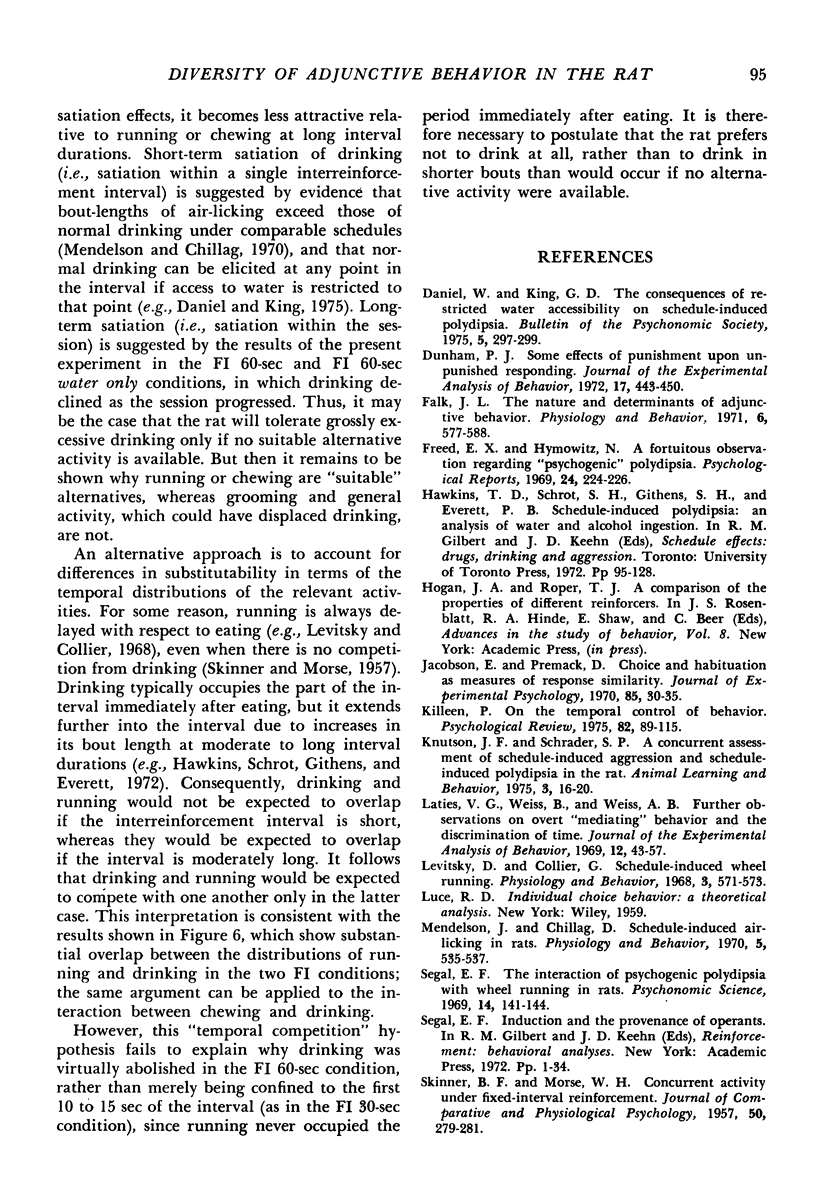
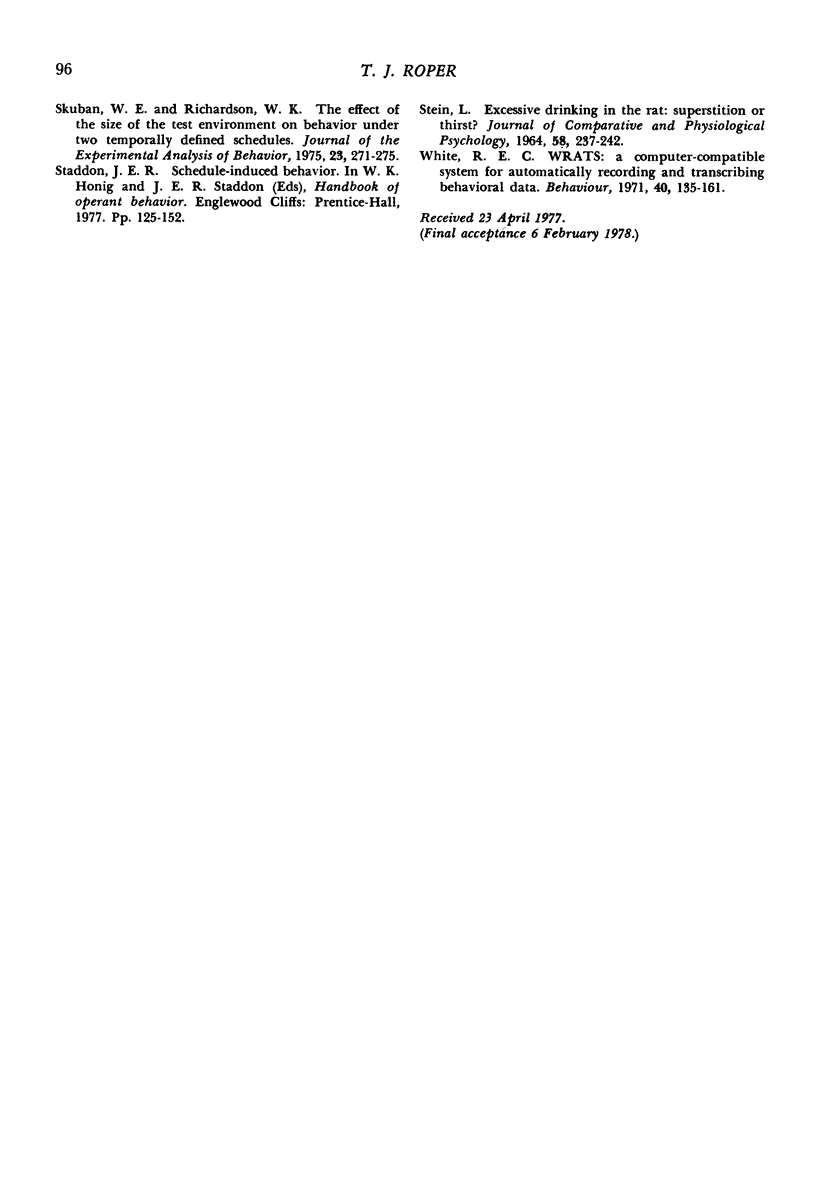
Selected References
These references are in PubMed. This may not be the complete list of references from this article.
- Dunham P. J. Some effects of punishment upon unpunished responding. J Exp Anal Behav. 1972 May;17(3):443–450. doi: 10.1901/jeab.1972.17-443. [DOI] [PMC free article] [PubMed] [Google Scholar]
- Falk J. L. The nature and determinants of adjunctive behavior. Physiol Behav. 1971 May;6(5):577–588. doi: 10.1016/0031-9384(71)90209-5. [DOI] [PubMed] [Google Scholar]
- Freed E. X., Hymowitz N. A fortuitous observation regarding "psychogenic" polydipsia. Psychol Rep. 1969 Feb;24(1):224–226. doi: 10.2466/pr0.1969.24.1.224. [DOI] [PubMed] [Google Scholar]
- Laties V. G., Weiss B., Weiss A. B. Further observations on overt "mediating" behavior and the discrimination of time. J Exp Anal Behav. 1969 Jan;12(1):43–57. doi: 10.1901/jeab.1969.12-43. [DOI] [PMC free article] [PubMed] [Google Scholar]
- Mendelson J., Chillag D. Schedule-induced air licking in rats. Physiol Behav. 1970 Apr;5(4):535–537. doi: 10.1016/0031-9384(70)90263-5. [DOI] [PubMed] [Google Scholar]
- SKINNER B. F., MORSE W. H. Concurrent activity under fixed-interval reinforcement. J Comp Physiol Psychol. 1957 Jun;50(3):279–281. doi: 10.1037/h0047021. [DOI] [PubMed] [Google Scholar]
- STEIN L. EXCESSIVE DRINKING IN THE RAT: SUPERSTITION OR THIRST? J Comp Physiol Psychol. 1964 Oct;58:237–242. [PubMed] [Google Scholar]
- Skuban W. E., Richardson W. K. The effect of the size of the test environment on behavior under two temporally defined schedules. J Exp Anal Behav. 1975 Mar;23(2):271–275. doi: 10.1901/jeab.1975.23-271. [DOI] [PMC free article] [PubMed] [Google Scholar]


